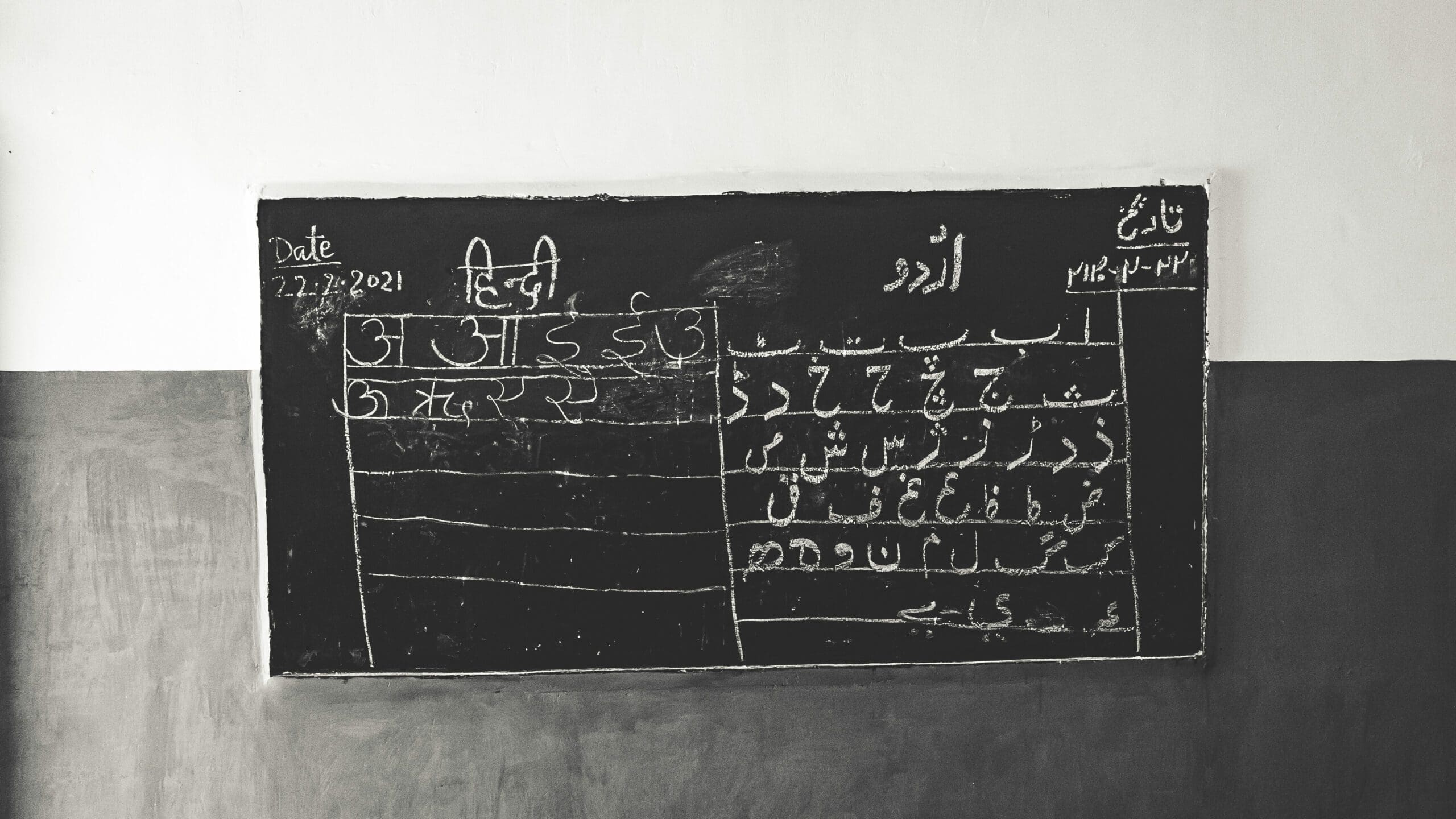
Genocide of a community often involves demonization, name changes, and history erasure. In India, open calls for Muslim genocide are being made with impunity. Epistemicide is the destruction, erasure, or devaluation of a knowledge system. Epistemic injustices that are persistent, systematic, and collectively function as an organized oppression of specific ways of knowing are called epistemicide. Epistemicide can happen in a number of ways if the hegemonic power controls the education and knowledge system, epistemicide results in either silencing or erasing the intellect and knowledge. In India, it has been in the process for a while, yet it took a fast pace recently.
Hindutva ideologues make incorrect assertions about premodern India. However, such fabrications serve the political objectives of demonizing Muslims as the supreme other and portraying a contemporary Hindutva ideology as an antiquated pillar of Indian civilization. In the midst of this confrontational atmosphere, Muslim historiography has endured unintended harm, resulting in its stifling and the erosion of its intricate narrative and significance.
Hindu nationalists have introduced historical claims into school textbooks and academic spaces, undermining their mission to advance science in India. By 1615, India had a thriving economy and a composite Indic-Islamic cultural fabric. However, textbook deletions often misinform children and generate a stunted relationship with the concept of the past.
The erasure of the Mughal and Sultanate periods is detrimental to understanding India’s history. During this period, India produced a quarter of the world’s GDP and was the largest exporter of textiles. There have been attempts to create a coherent narrative that exalts the Hindu majority and its leaders by eradicating mentions of Iqbal, Maulana Abul Kalam Azad, the Godhra riots, and other important historical and scientific facts from textbooks.
More than 100 books authored by Maulana Maududi and Forty books by Syed Qutub have been taken out of the AMU library. While Maududi was an Indian national who fled to Pakistan in 1947 when that nation was separated, Syed Qutub was an Egyptian-Muslim scholar. Both lived at the same time. The work produced by two prominent Islamic minds and authors, Syed Abul Ala Maududi and Syed Qutub Shahid, were abruptly removed from the Aligarh Muslim University (AMU) and Jamia Millia Islamia (JMI) Islamic Studies curriculum after a group of 25 academics with allegedly Hindutva backgrounds sent a letter to Prime Minister Narendra Modi in this regard.
From the sixth semester of the B.A. degree onward, Delhi University has decided to take Mohammad Iqbal off of its Political Science course syllabus. Maulana Azad’s name was recently purged by the National Council of Educational Research and Training (NCERT) from the opening section of the class 11 political science textbook, “Constitution – Why and How?”. The exclusion of Iqbal and Azad from the curriculum should not be viewed as a standalone event. Instead, it ought to be viewed as a part of a long-running effort at erasing and invisibilization that was started by left-liberal academics and has since been improved as a model—for additional erasures—within the contemporary academic environment controlled by Hindutva ideology.
Additionally, BJP politicians have renamed towns and cities along with rewriting history in an effort to erase anything associated with Islam and Muslims from the country (both past and present). To hone in and deepen divisions, visible markers or practices associated with Islam and/or Muslim identity have been marked as antithetical or even dangerous to Indian identity. Another way to emphasize Hindu dominance and eliminate the traces of other influences that formed India’s geography and culture is to rename locations with Muslim or colonial overtones into names that sound more Hindu.
On 31 March, an extremist mob set the Azizia Madrasa in Bihar Sharif, eastern India, ablaze during a Hindu religious festival. In the fire, more than 4,500 printed volumes and manuscripts with Islamic roots were destroyed or damaged with petrol bombs thrown into a nearby mosque and explosives outside the madrasa’s classrooms. One person died in the violence, and several remain injured.
The Azizia Madrasa, established around a century ago, forms the core of Muslim communities and fosters childhood development and education. The destruction of the library has left ashes of burned books on the floors, and the histories of these books are forever fragmented. After a number of new laws against Muslims were passed in India on both the federal and state levels, violence broke out.
Several chapters and portions on Mughal history were removed from Indian school textbooks by the National Council of Educational Research and Training (NCERT), essentially removing three centuries of Indian history from the curriculum and distorting the perspectives of future generations. Although this has been denounced by eminent historians from all around the world, it is uncertain if this will have any effect. One wonders what the future holds in light of the razing of a madrasa library when governments and organizations in India show no evidence of protecting Muslim history. Libraries are not just stacks of old books but contain lives whose histories are waiting to be told.
Epistemicide serves as a fertile ground for discrimination against specific groups. By erasing or marginalizing the contributions of particular communities, such as Muslims, it allows for the proliferation of prejudiced perceptions that reinforce stereotypes and negative biases. Discrimination can then permeate various aspects of daily life, including education, employment, housing, and access to public services. Epistemicide transcends the confines of academia and holds profound societal consequences, including the potential for violence and discrimination against marginalized groups.
Recognizing the significance of preserving diverse knowledge systems and honouring the contributions of all communities is indispensable for constructing a society that genuinely upholds the principles of inclusivity, diversity, and pluralism.
Nabeel Ahmed is currently working as an External Consultant – Library at the Indian Institute for Human Settlements. Ahmed completed his post-graduation in Library and Information Science from Aligarh Muslim University, Aligarh in 2020.



